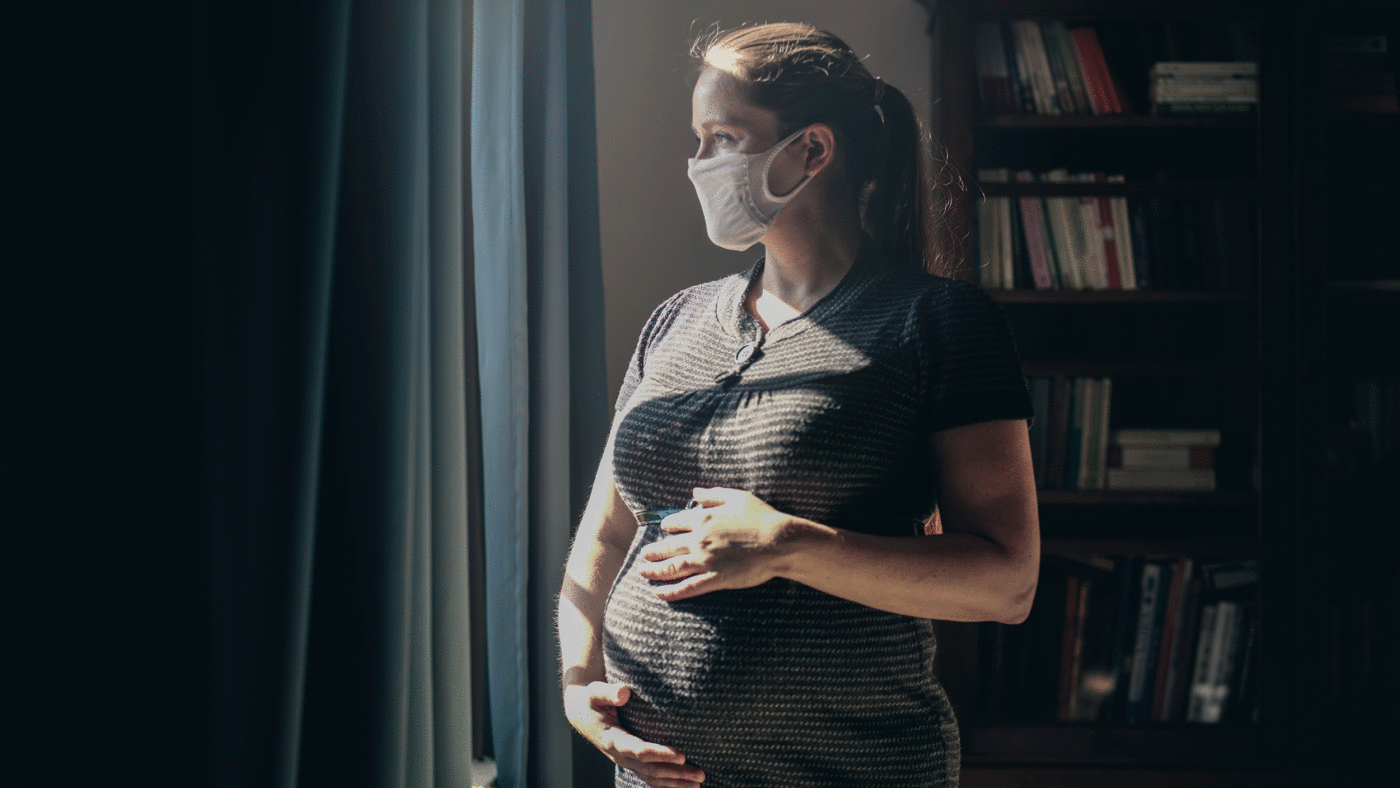Picture a world in which Covid killed children and pregnant women. Questions about schools, social distancing and personal responsibility would be framed completely differently, and the cost/benefit calculations radically altered. It’s difficult to imagine a slogan as drily institutional as ‘protect the NHS’ if thousands of babies were dying.
We’re now getting a harrowing glimpse of what that world might look like. Record numbers of pregnant women are currently in intensive care with Covid. Expectant mothers are more likely to get extremely ill from Covid, with one US study finding that they had a 14 times higher chance of dying compared to their peers. Covid-19 also significantly increases the risk of miscarriage, premature birth and stillbirth.
Pregnant women with Covid are some of the sickest patients in British hospitals today, with organs so damaged they need a machine to replace the functions of their hearts and lungs via a therapy called Extracorporeal Membrane Oxygenation (ECMO). In August almost a third of women under 49 on ECMO were pregnant. Anecdotal evidence from doctors on the frontline suggests that there are now many more expectant mothers in ICUs.
The primary reason for this is that pregnant women are among the most vaccine hesitant. The Royal College of Obstetricians and Gynaecologists estimates that just over 10% of pregnant women in England had been fully vaccinated by the end of August, compared with 74% of the general population. This is hardly surprising given that until April, only pregnant women who were ‘clinically extremely vulnerable’ were advised even to consider the vaccine. It’s only now that so many mothers are so ill that messaging around the safety of the vaccine has taken on any sort of urgency.
Let’s be clear, this is not about irresponsible conspiracy theories. Being dubious about putting a brand-new vaccine into a body that isn’t entirely your own, is completely rational. Pregnant women forgo alcohol, cheese, sushi and cured meats because they carry slight risks to foetuses. If you won’t eat brie, refusing to take a drug whose effects on unborn children no one really knows is hardly a stretch. Scared women are not the problem.
There’s an ignominious history of bad science being foisted on mothers, from the outrage of thalidomide to false alarms about the MMR vaccine. Around 800,000 pregnancies are conceived ever year, yet it’s still a challenge for expectant mothers to sort sensible advice from quack remedies and old wives’ nonsense. Caroline Criado Perez has written here and in her book Invisible Women about how women are routinely sidelined in medical research and get worse healthcare as a result. She describes how similar data gaps can be found everywhere from technology to urban planning, but there’s also a thought and a communication gap – a habit of overlooking or simply forgetting about women’s wishes and fears ingrained in a society designed for men. The lack of evidence about the safety of Covid vaccines for pregnant women, combined with a failure to speak to the needs of women at one of the most vulnerable times of their lives are now proving fatal – and both were foreseeable.
The mishandling of the messaging around the vaccine is just the latest example of how badly treated pregnant women have been in the pandemic. At the start of lockdown some hospitals banned partners from ante-natal appointments and even from labour. Mothers miscarried alone, were told their babies were dead at scanning appointments or endured hours of agonising contractions on a ward while their partners waited in the car park. There are some gruelling case studies here, but anyone who’s known someone pregnant during the pandemic will have their own story.
NHS England issued guidance urging all Trusts to allow partners to attend all ante-natal appointments in September 2020 – after the introduction of Eat Out To Help Out. As Petitions Committee chair Catherine McKinnell told the Prime Minister, at many stages of the pandemic it was easier for a new father to ‘go to the pub or grouse shooting than to attend his own baby’s growth scans’.
Nor is neglect for pregnant women specific to Covid. Maternity care in this country is patchy at best and criminally culpable at worst. Independent investigators are currently looking into the deaths of more than 200 babies at East Kent NHS Trust, after it pleaded guilty to causing the ‘wholly avoidable’ death of baby Harry Ritchford at just seven days old. That’s just one example – across the country three in five maternity services are ranked as ‘requires improvement’ for safety by CQC standards, higher than any other speciality. Black women are four times more likely to die in childbirth. Yet a recent report by the Joint Committee on Human Rights concluded that ‘the NHS acknowledge and regret this disparity but have no target to end it’. That’s not good enough.
Pregnancy and childbirth isn’t an illness; it’s an ordinary fact of human existence. So it’s astonishing that in a rich, advanced society with a health service that’s supposedly the ‘envy of the world’ we’re still so bad at dealing with it. It would be easy to say that this wouldn’t be the case if it happened to men, but it does – boys are born and men are fathers. Everyone in society has a stake in how children come into the world.
Pregnant women place their own health second to that of their unborn child. The state shouldn’t treat them as an afterthought too.
Click here to subscribe to our daily briefing – the best pieces from CapX and across the web.
CapX depends on the generosity of its readers. If you value what we do, please consider making a donation.


